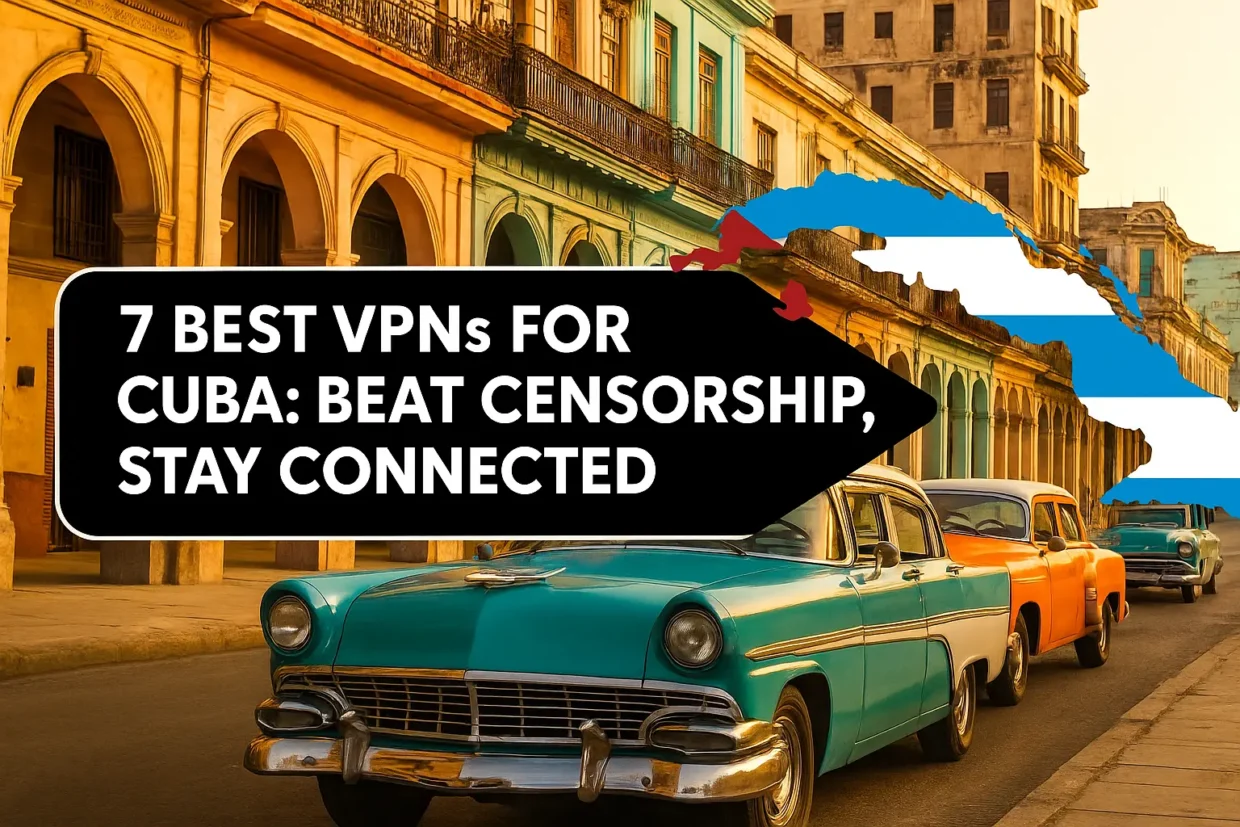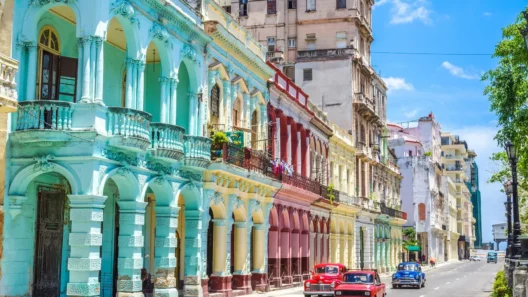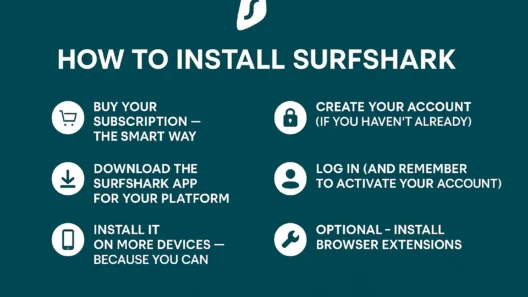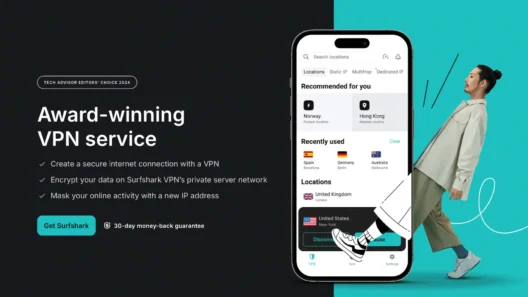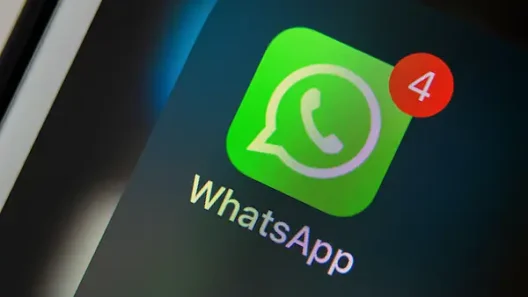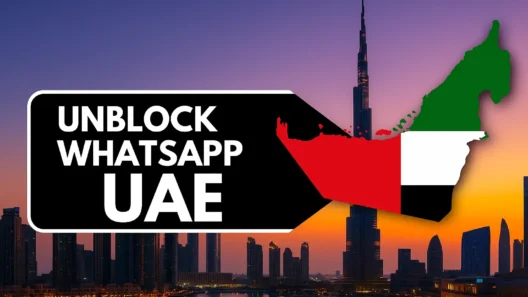If you’re dreaming of a digital detox, Cuba is perfect. But if you like staying connected—think emails, streaming, or just checking the news—you’ll need patience and a good plan. Trust me, the internet here is a world of its own. Let me walk you through how things really work when you’re actually on the island.
Slow, Monitored, and Not Cheap
First thing: forget about free Wi-Fi on every corner. In Cuba, you get online with a NAUTA scratch card (sold by ETECSA, the state-run monopoly). Every login is linked to your passport or ID—so you’re never anonymous. Even in tourist hotspots, speeds are slow, connections are unstable, and sometimes the internet just disappears without warning.
7 Best VPNs for Cuba: Quick Comparison & My Experience
After years of traveling and actually using VPNs on the ground in Cuba, here’s my honest take: not all VPNs are created equal, and some just work better under local conditions.
Below is a quick table with my top picks, each tested personally.
| VPN for Cuba | What Works Best | Try Link |
|---|---|---|
| NordVPN | Fastest for news & streaming | Try NordVPN |
| ExpressVPN | Easiest setup, great for mobile | Try ExpressVPN |
| Surfshark | Unlimited devices, solid price | Try Surfshark |
| PIA | Most servers, super flexible | Try PIA |
| CyberGhost | Simple for beginners, streaming | Try CyberGhost |
| IPVanish | Best for groups, strong privacy | Try IPVanish |
| ProtonVPN | Best for privacy-focused users | Try ProtonVPN |
How I tested?
I connected to hotel and public Wi-Fi in Havana, Varadero, and even tiny towns, using each VPN for at least a week. The table above shows which ones gave me the best speeds, security, and access to news and streaming—even on Cuba’s toughest networks.
Internet by Destination on Cuba
Havana
Havana is the best bet if you want regular Wi-Fi. There are hotspots in parks, hotel lobbies, and some bars. The best hotels (like Hotel Nacional or Parque Central) usually have the fastest connections. But peak hours mean crawling speeds, so I log in early mornings if it’s urgent.
Varadero
This is Cuba’s all-in-one resort playground. Hotels here usually offer guest Wi-Fi, often for free. Don’t expect blazing speeds, but at least you can upload your beach photos. Streaming is hit-or-miss, but messaging works.
Trinidad
Trinidad is classic Cuba, but with old-school internet. Hotspots cluster near Plaza Mayor or the local ETECSA building. Most private guesthouses don’t have Wi-Fi. I always download maps and entertainment in advance, just in case.
Santiago de Cuba
There’s less coverage here, but decent Wi-Fi in big hotels and central parks. Once you move away from the main squares, it gets patchy. Mobile data is painfully slow. I wouldn’t rely on video calls here.
Cienfuegos & Holguín
You’ll find public hotspots in city centers, plus spotty hotel Wi-Fi. Resorts near Guardalavaca (Holguín) usually have decent connections, but outages are normal. For important stuff, go offline-ready.
Small Towns & Islands
If you’re heading to Viñales or the islands, consider it an offline retreat. Some hotels have Wi-Fi in the lobby, but outside resorts, forget about it. Always have offline tools ready—you’ll thank me later.
Censorship and What’s Actually Blocked
What the Cuban Government Blocks
Internet freedom isn’t exactly a thing in Cuba. The government monitors public Wi-Fi and often blocks or throttles anything it doesn’t like—especially independent news or political sites. Human rights groups and some international news are simply unreachable from a Cuban IP.
U.S. Sanctions: Double Trouble
As if government censorship wasn’t enough, U.S. sanctions mean a ton of sites and apps don’t work here. No PayPal, no Zoom, and some streaming platforms are blocked. Even Google Play and the App Store can be missing key apps for Cuba. Always download what you need before your trip.
Social Media
Most days, Facebook, WhatsApp, Instagram, and YouTube work fine—until they don’t. During protests or big events, the government sometimes shuts them down or slows them to a crawl. Skype is usually blocked, but WhatsApp calls get through (as long as the network holds up).
Why You Absolutely Need a VPN in Cuba
Let me put it this way: trying to use the internet in Cuba without a VPN is like heading out for a beach day and leaving your sunscreen at home. You might get by for a while, but sooner or later, you’re going to regret it. Here’s why I never travel to Cuba (or honestly, any country with strict internet rules) without a solid VPN ready to go on every device.
1. Privacy: Protect Yourself on Public Wi-Fi
Every single Wi-Fi network in Cuba is public. It doesn’t matter if you’re in a five-star hotel or a smoky old-school bar in Havana, you’re connecting through a government-run system where nothing is private.
VPNs encrypt all your traffic, so nobody—not nosy officials, not hackers, not anyone sitting nearby—can see what you’re really doing online. That’s peace of mind you want when you’re using banking, work email, or even just messaging friends.
2. Beating Censorship: Get Past Government Blocks
Want to read real news? Or maybe access your favorite blog, WhatsApp group, or news podcast? Good luck—unless you use a VPN.
Most political, independent, and even some regular international news sites are blocked in Cuba. With a VPN, you can “move” your connection to Miami, Madrid, London—wherever you want. Suddenly, the whole internet opens up again, just like back home.
3. Stream Without Limits (or at Least Try To)
Streaming Netflix or YouTube from a Cuban IP is usually pointless. Even if the services technically work, you get a tiny library and video quality that makes VHS tapes look good. U.S. sanctions and licensing restrictions mean a lot of stuff is simply blocked.
A VPN lets you “be” in another country, so you get your regular streaming libraries—and a much better chance at actual video playback. (Just keep your expectations realistic, because slow Cuban internet will always be a bottleneck!)
4. Unblock Apps and Online Services
You never realize how much you rely on stuff like PayPal, Zoom, or Google apps until they just don’t work. That’s daily life with a Cuban IP address. A VPN lets you use all those blocked apps just like you would at home.
Honestly, for anyone who works online—even just to check travel bookings or get a boarding pass—a VPN is a lifesaver here.
5. Stay Off the Radar
Nobody goes to Cuba planning to get in trouble for their Google searches or Instagram likes. But the reality is, all internet traffic is monitored and logged. Even if you’re just a tourist, it’s smart to play it safe.
With a VPN, your browsing is hidden, your real location is masked, and you’re way less likely to run into any awkward “access denied” pages.
How VPNs Work on the Island
I won’t bore you with geek-speak, but here’s the short version: a VPN creates a secure tunnel between your device and a server somewhere else in the world. Everything you do online travels through that tunnel, fully encrypted.
To the Cuban internet (and anyone watching), it looks like you’re just sending and receiving meaningless data blobs to some random place—your real websites, messages, and searches are completely hidden. Meanwhile, to the rest of the world, it looks like you’re wherever the VPN server is located.
One thing to remember: you have to set up your VPN BEFORE you get to Cuba. The government blocks most VPN websites and some app stores, so downloading once you’ve landed is a nightmare. Set up your accounts, download your apps, and make sure everything works before you leave home.
My Top 7 VPNs for Cuba in 2025
I’ve tested a bunch of VPNs over the years in Cuba and other tricky places. Here are the ones I actually trust to get the job done, along with some notes from real experience. These are all paid VPNs (free ones won’t cut it here—trust me!).
1. NordVPN
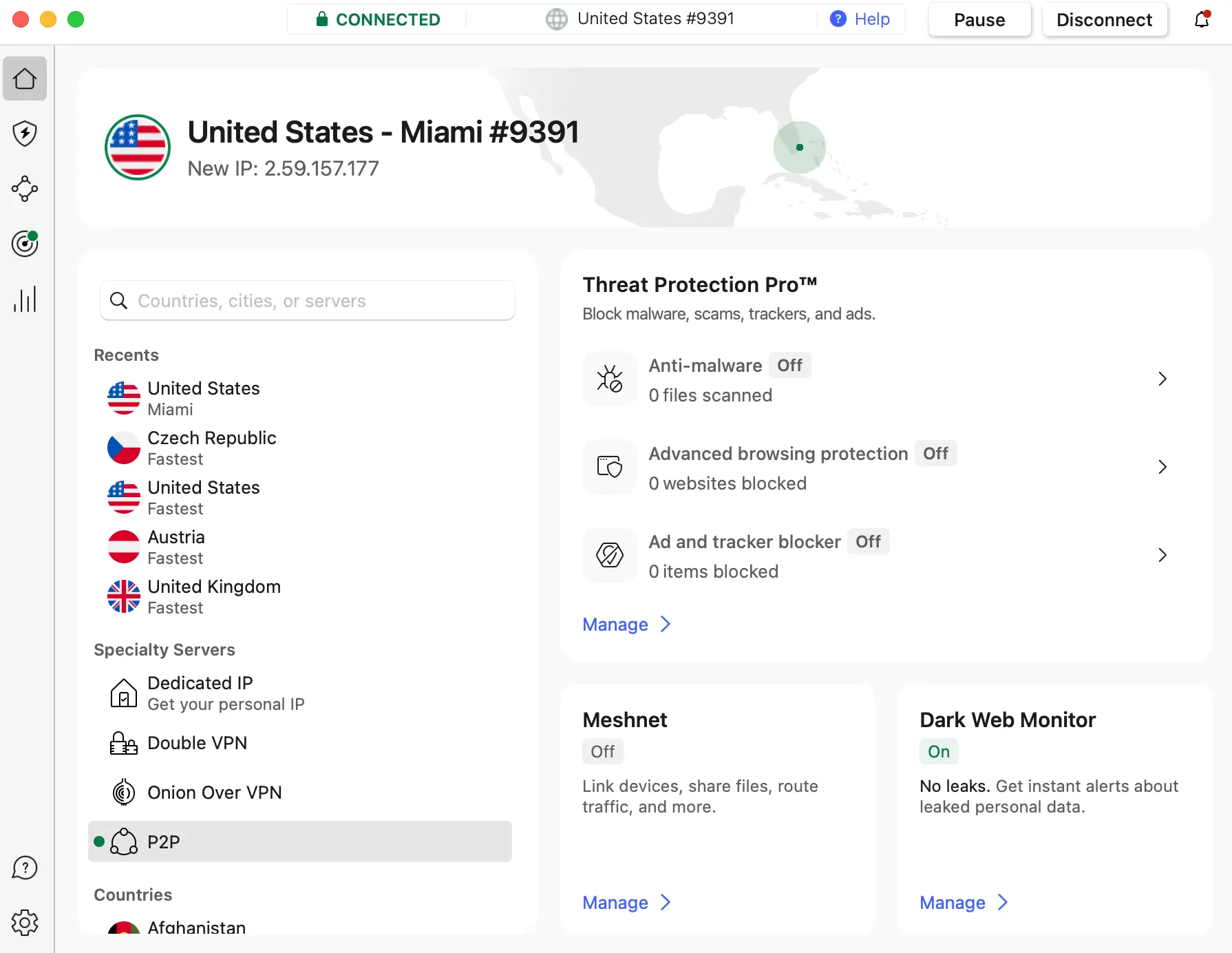
I reach for NordVPN whenever I want the best mix of speed, security, and reliability. Their “NordLynx” protocol is fast, which is crucial on slow Cuban Wi-Fi.
They’ve got servers close to Cuba (like Miami or Mexico), killer security, and apps for every device. Streaming works, news unblocks easily, and the interface is simple even if you’re not a techie.
2. ExpressVPN
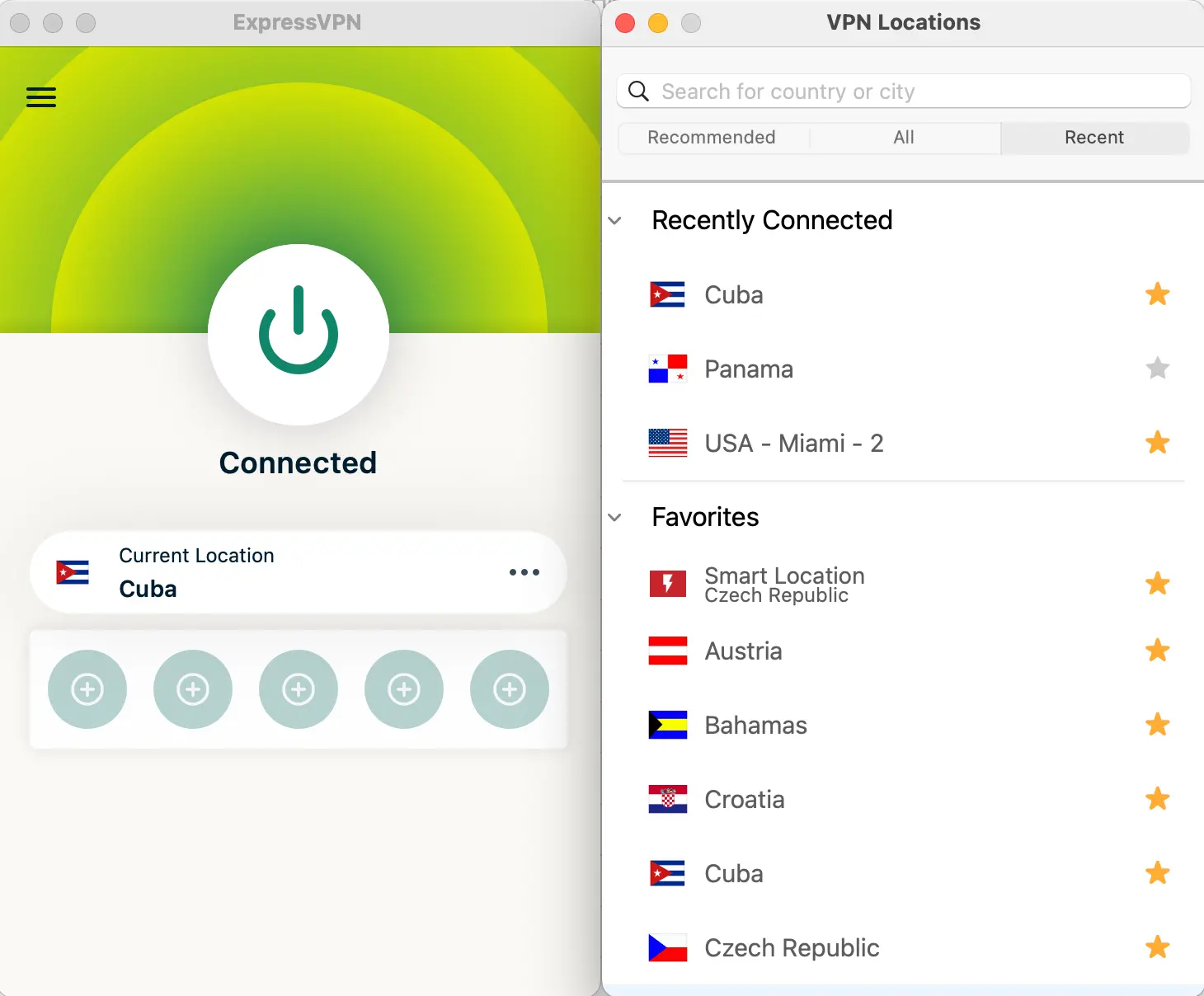
ExpressVPN is probably the most “plug and play” service I’ve tried. It’s super easy to use, connects fast, and has a server right in Havana (unique among big VPNs).
Their privacy reputation is rock solid, and the apps work everywhere. ExpressVPN handles censorship well, is great for streaming, and has one of the best mobile apps for travel.
3. Surfshark
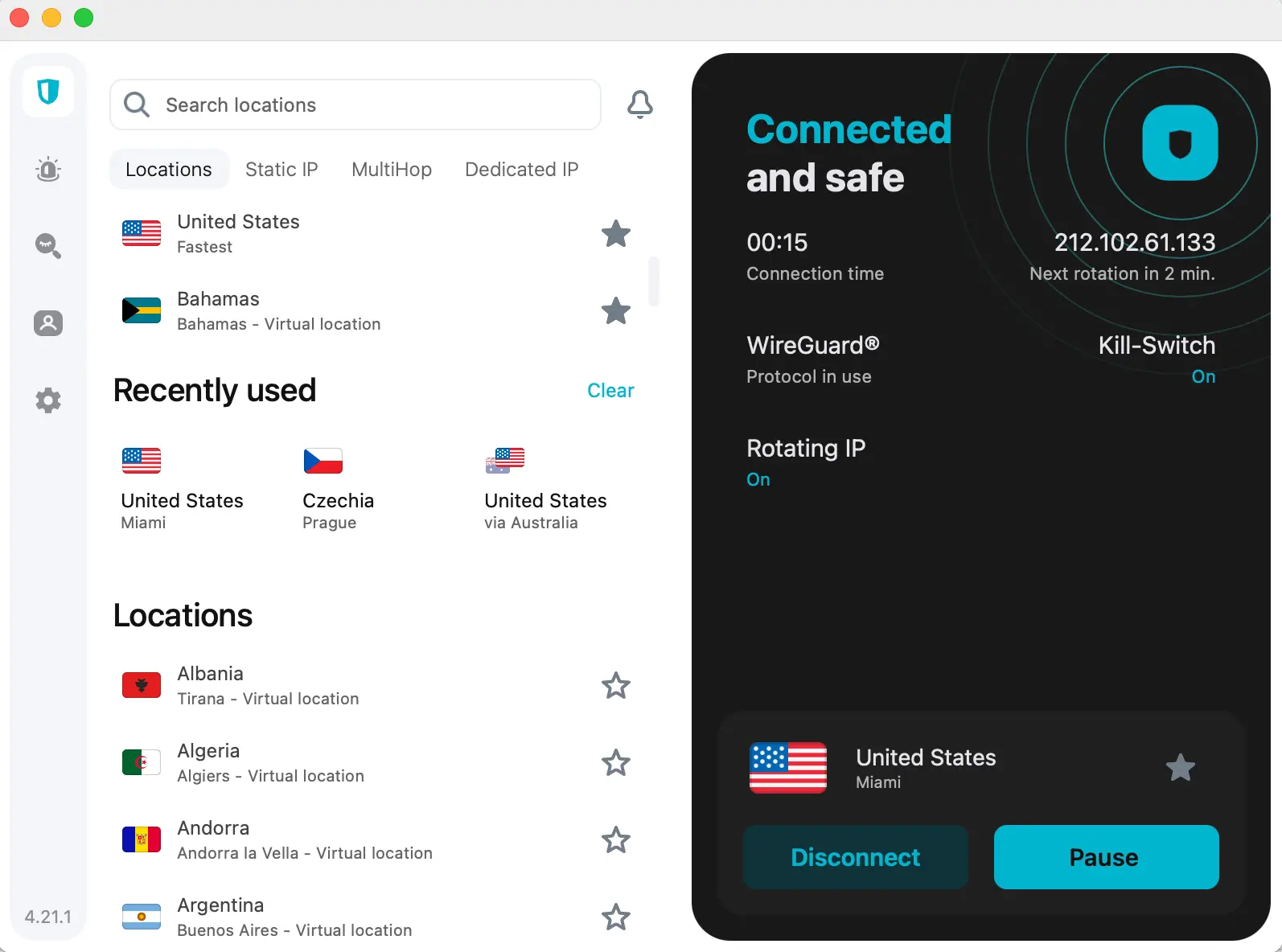
Surfshark is the value king—one subscription covers unlimited devices. Fast, modern, simple interface, and packed with features like “Camouflage Mode” to hide the fact you’re even using a VPN (which is awesome for Cuba).
Streams Netflix, unlocks blocked sites, and I’ve never had a real problem with connections.
4. Private Internet Access (PIA)
PIA is all about options—tons of servers, strong privacy, and lots of geeky settings for power users. Not quite as user-friendly for total beginners, but the reliability and price are great.
Good for families or groups, since it covers unlimited devices and offers easy app setup.
5. CyberGhost
CyberGhost is easy to set up, friendly for beginners, and includes special servers for streaming. They have tons of locations, and their app is very clear about what each server is best for.
If you just want something that works out of the box for news and Netflix, CyberGhost is a safe pick.
6. IPVanish
IPVanish is rock solid for security, and their new WireGuard protocol helps boost speed. Not as slick as some others, but unlimited devices and strong privacy.
Good for sharing with your travel buddies if you’re on a group trip.
7. ProtonVPN
For privacy nerds (or anyone who just wants the absolute best security), ProtonVPN is a top choice. Based in Switzerland, with extra features like “Secure Core” and a decent free plan (though the free version is too slow for Cuban streaming). For most travelers, their paid plan unlocks everything you need.
What Really Matters When Choosing a VPN for Cuba
Let’s be honest: all those “top VPN” lists on the web sound the same. But on the ground in Cuba, a few features really make or break your experience. Here’s what I always check before recommending any VPN for Cuban travel:
Speed & Server Locations
You want the fastest connection possible—Cuba’s internet is slow enough already. Choose VPNs that have servers physically close to Cuba (like Miami, Mexico, or even Spain).
WireGuard-based protocols (like NordLynx, ExpressVPN Lightway, Surfshark WireGuard) generally give you the best speeds on dodgy hotel Wi-Fi.
Obfuscation (Stealth/Disguise) Modes
Some hotel or public Wi-Fi networks can block or throttle standard VPN protocols. Features like Surfshark’s Camouflage Mode, NordVPN’s Obfuscated Servers, or ExpressVPN’s Stealth technology make it much harder for Cuban networks to even detect you’re using a VPN.
No-Logs & Strong Encryption
Cuba isn’t the place to take privacy shortcuts. Make sure your VPN has a proven “no-logs” policy and uses strong encryption (look for AES-256 or ChaCha20). All my top picks above deliver on this front.
Streaming Support
If you want to watch Netflix, BBC iPlayer, or sports from home, your VPN must actually unblock streaming services. Not all do! NordVPN, ExpressVPN, Surfshark, and CyberGhost are especially strong here.
Unlimited (or Lots of) Devices
Wi-Fi in Cuba can be a pain to share. If you’re traveling with family or friends, look for VPNs that allow lots of simultaneous connections—Surfshark, PIA, and IPVanish don’t limit you.
Kill Switch and Auto Connect
This is crucial: if your VPN connection drops (which happens a lot on flaky Cuban Wi-Fi), you want your device to stop sending unencrypted data. Make sure your VPN has a “kill switch” and set it to auto-connect on startup.
Quick Comparison Table: Top 7 VPNs for Cuba in 2025
| VPN | Servers Near Cuba | Streaming Works | Stealth/Obfuscation | Devices Allowed | App Simplicity |
|---|---|---|---|---|---|
| NordVPN | Miami, Mexico | Yes | Yes | 10 | Very easy |
| ExpressVPN | Havana, Miami | Yes | Yes | 8 | Super easy |
| Surfshark | Miami, Panama | Yes | Yes (Camouflage) | Unlimited | Very easy |
| PIA | Miami, Mexico | Yes | Yes | Unlimited | Easy (more advanced features) |
| CyberGhost | Miami, Spain | Yes | Partial | 7 | Very easy |
| IPVanish | Miami, Mexico | Yes (most) | Yes (Scramble) | Unlimited | Easy |
| ProtonVPN | Miami, Spain | Yes (paid) | Yes (Stealth) | 10 | Easy |
My Pre-Trip VPN Setup Checklist
I can’t stress this enough: set everything up BEFORE you land in Cuba. Here’s my exact pre-trip routine, every single time:
- Buy & Install Your VPN: Download the VPN apps for all your devices (phone, laptop, tablet, etc.) while you’re still at home.
- Test the Connection: Connect to a couple of different servers (especially those near Cuba) and check that you can access your usual sites, email, Netflix, and your banking.
- Turn On the Kill Switch: Find this in your VPN app’s settings and make sure it’s enabled.
- Enable Auto-Connect: Set your VPN to launch automatically every time your device starts, or whenever you join a new Wi-Fi.
- Download Offline Installers: For Android, grab the APK file and save it somewhere. For laptops, save the VPN installer file. That way, if you need to reinstall in Cuba, you’re not stuck.
- Make Backup Plans: If you want, consider setting up a second VPN app (like ProtonVPN’s free plan as a last resort). Sometimes one service is blocked, but the other works.
- Update All Apps: Update everything—apps, operating systems, and browsers—while you’re still on fast home Wi-Fi.
Final Travel Tips for Internet in Cuba
- Have Realistic Expectations: Even with the best VPN, Cuba’s internet is still slow. Plan ahead and download entertainment, documents, and maps before you arrive.
- Respect Local Laws: Using a VPN is legal for tourists, but don’t go advertising it to strangers or Cuban authorities.
- Offline is Freedom: The less you need to do online, the happier you’ll be. Embrace the digital detox vibe and use the chance to unplug.
Ready to travel smart? With the right VPN (and some patience), you can beat Cuban censorship, stay connected, and get the most out of your adventure—without missing a beat online.
Frequently Asked Questions: VPNs & Internet in Cuba
Is it legal to use a VPN in Cuba as a tourist?
Yes, it’s legal for travelers to use a VPN in Cuba. There’s no law against it for visitors. Just don’t make a show of it and set up your VPN before you arrive, since VPN websites can be blocked locally.
Will a VPN really let me stream Netflix or BBC iPlayer in Cuba?
Most of the time, yes! The right VPN can give you access to your usual streaming services and unblock restricted content. Just keep in mind: Cuba’s internet is slow, so expect lower video quality and more buffering than at home.
Can I download VPN apps after I arrive in Cuba?
Not easily. Many VPN websites and even app stores are blocked on Cuban Wi-Fi. Always download and install your VPN before your trip, and test it on all your devices.
Will a VPN protect my personal data on Cuban Wi-Fi?
Absolutely. A VPN encrypts all your data, keeping your emails, messages, and logins private—even on totally open public Wi-Fi in hotels or parks.
Which VPN should I choose for Cuba if I’m not tech-savvy?
If you want something easy, go for ExpressVPN or Surfshark. Both have super simple apps, fast support, and work great on Cuba’s networks—even for beginners.








